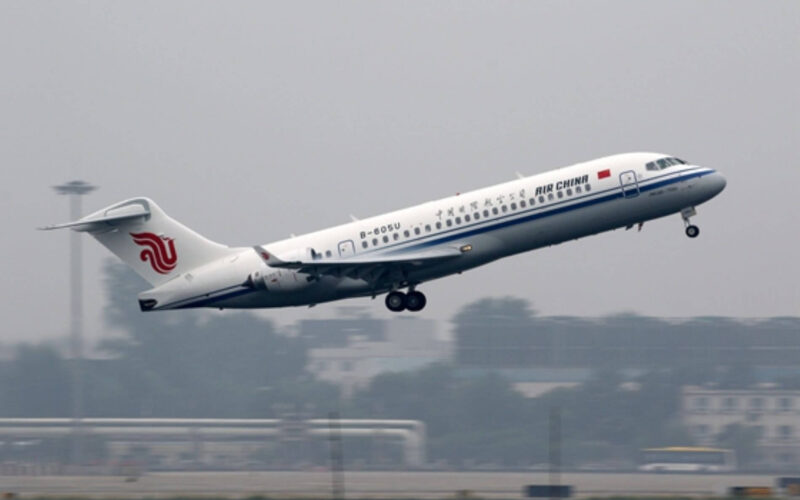China’s third-largest airline has reported the inaugural flight of its first ARJ21 regional jet, the much-celebrated domestically produced addition to its fleet, consisting of numerous Boeing and Airbus narrow-body aircraft.
Short but enthusiastic ceremony was held at the Beijing Capital International Airport (PEK), complete with artists dancing in national dresses and offering holy Khata, a ceremonial silk scarf, as per local tradition. The ceremony underlines the importance of occasion for COMAC, as the state-owned manufacturer is set to recapture Chinese market dominated by western-produced aircraft.
But the occasion may be even more significant for Xilnhot – a city where the flight was headed to. It is a center of Xilnot league, a subdivision of China’s rural Inner Mongolia. The autonomous region sees a rapid shift from mineral resource exploitation to digital industry, and even more rapid economic growth. Yet the region is also home for the majority of the country’s Mongol population and a scene of not infrequent ethnic unrest.
A flight of the airline’s first Chinese-made jet in this context comes off as largely symbolic gesture, as well as a statement.
“For most of the passengers taking this inaugural flight, it is the first time to take a China-made aircraft. From the moment they got the news, they became more excited and curious than ever before; and from the moment they entered the cabin, they began to feel every detail of ARJ21 aircraft. The China-made aircraft gave a new meaning to this flight,” COMAC’s press release states.
ARJ21 is the first turbofan regional jet developed entirely in China. After entering mass production in 2018, it is mostly operated by Chengdu Airlines and Genghis Khan Airlines. A number of other Chinese airlines operate at least one jet of this model, including China’s largest China Southern Airlines (ZNH) .
Air China’s fleet mostly consists of Boeing 737, as well as Airbus A320 and A321, but is set to receive two additional ARJ21-700 this year, as a supplement to its transport capacity on routes to Inner Mongolia.

